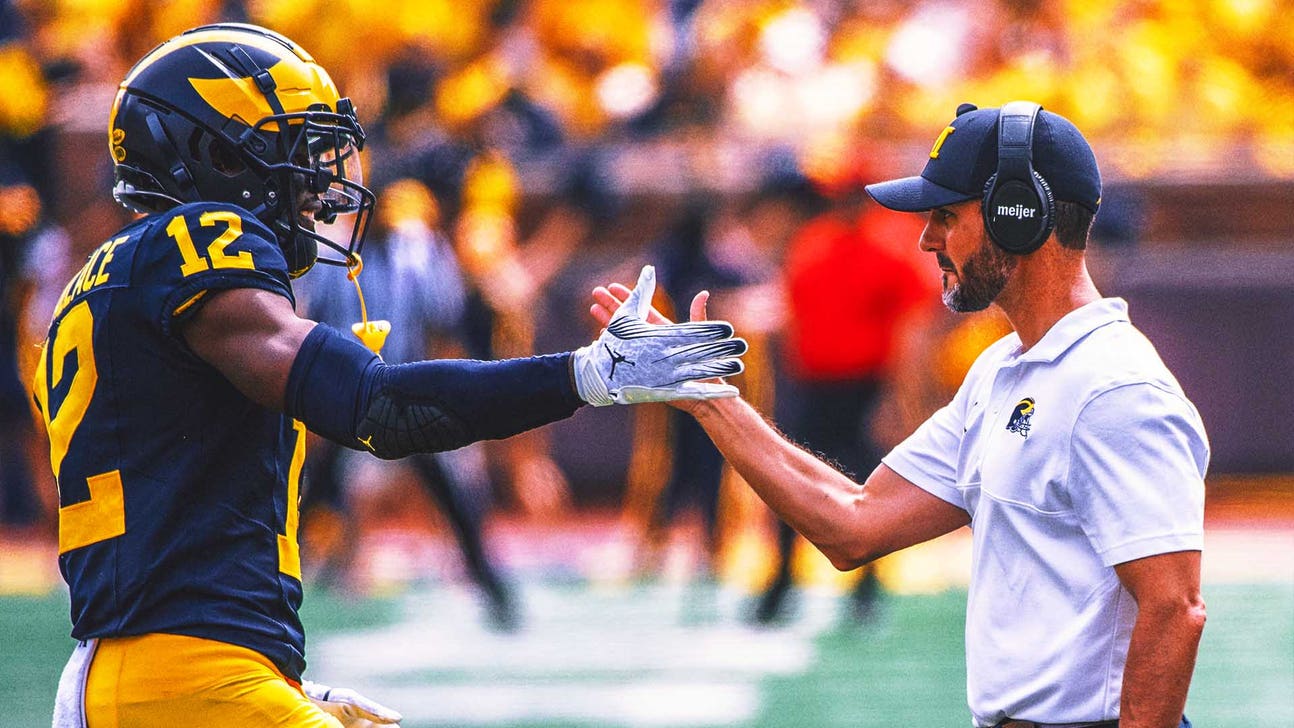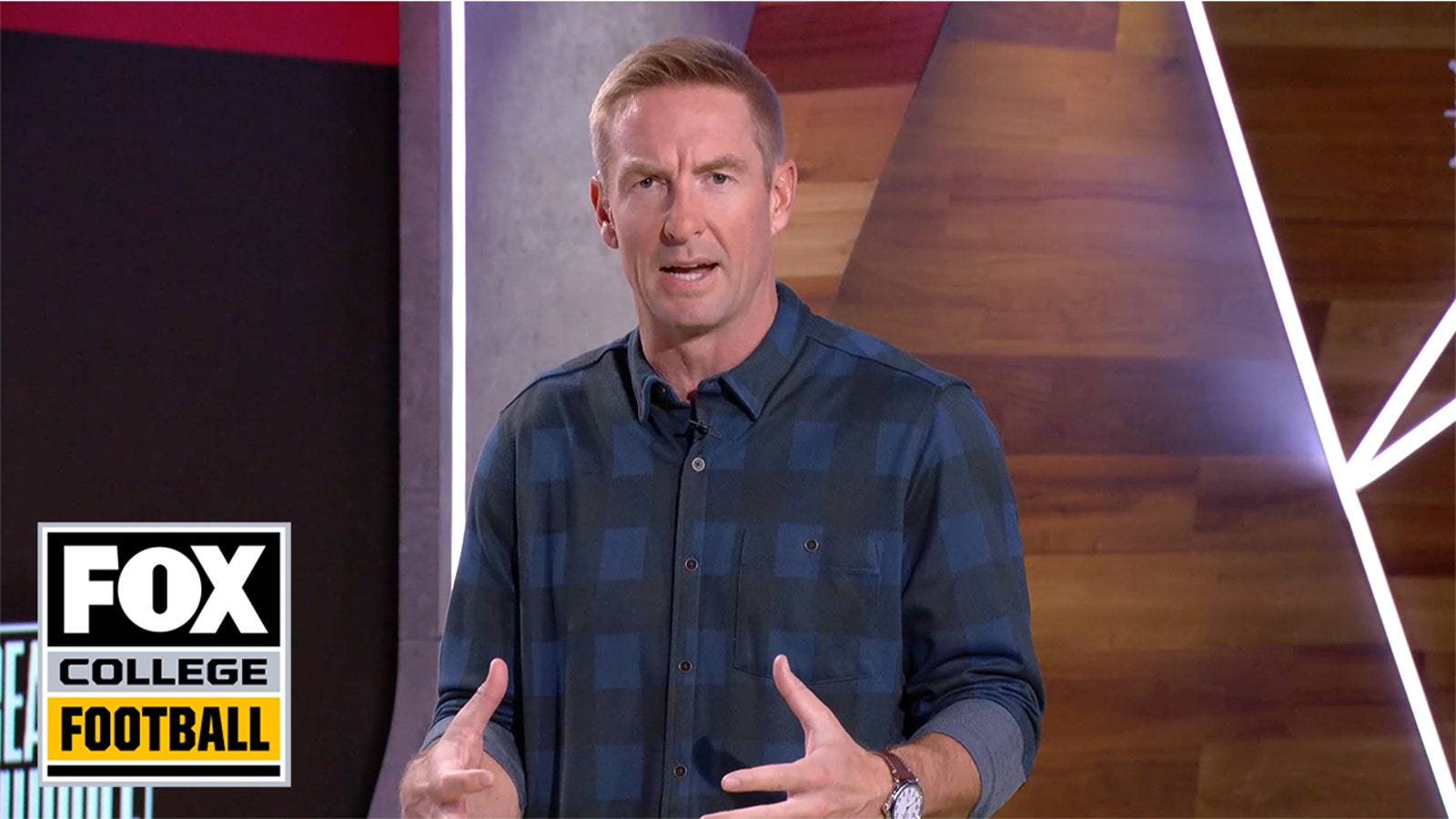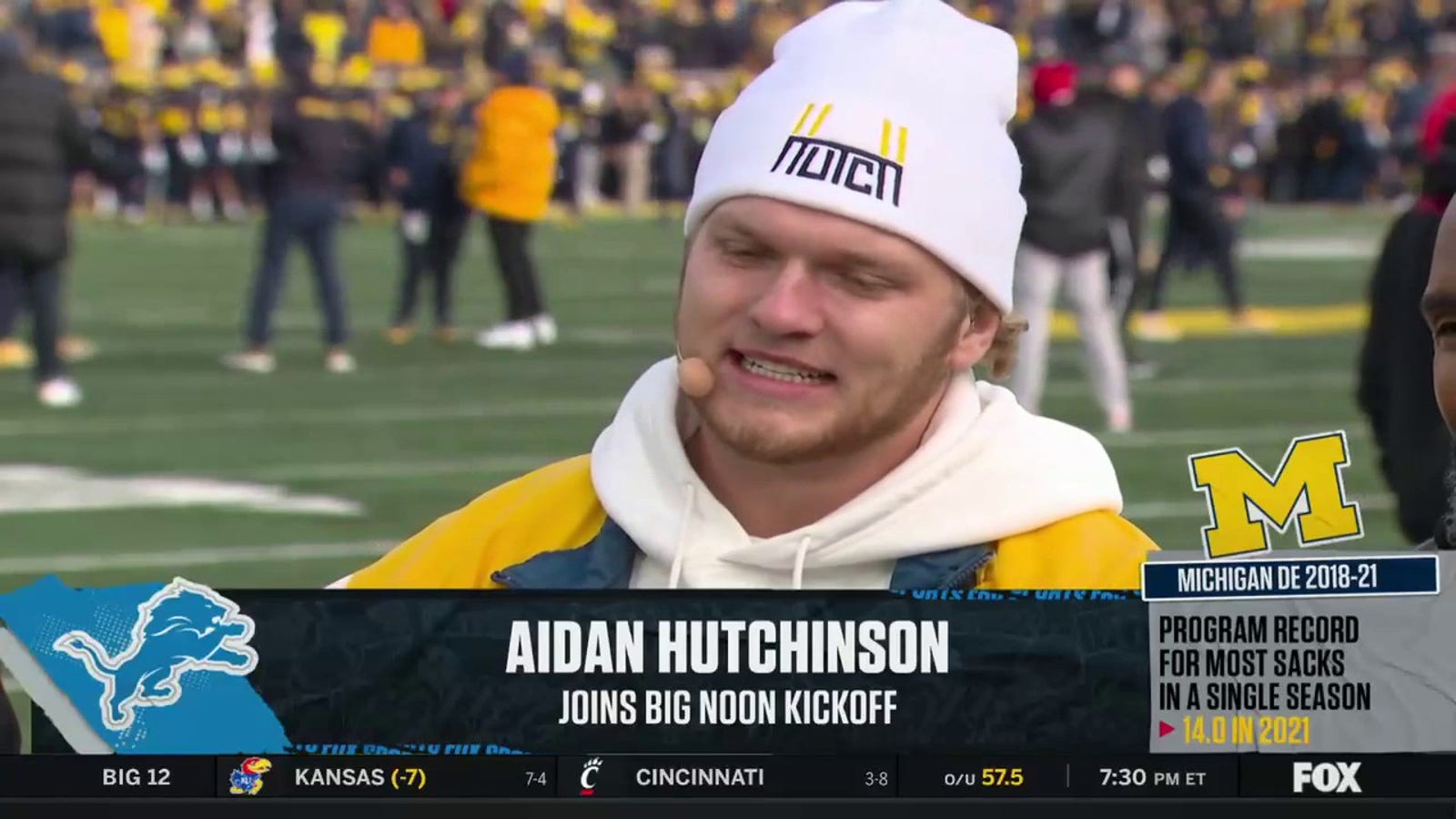
Can a Michigan defense built on fundamental 'pillars' stop stacked Alabama?
LOS ANGELES — On the flight home from Michigan's stomach-churning loss to TCU in last year's College Football Playoff semifinals, defensive coordinator Jesse Minter subjected himself to an immediate re-watch of the carnage. He saw 51 points allowed and 488 yards surrendered, four red zone touchdowns conceded and a 50% failure rate on third down. With the pain of a fractured season still fresh, Minter put pen to paper and made a list of the places he'd fallen short.
"Not looking at the players," Minter said in a news conference on Wednesday morning, "but looking at myself of, ‘How did we prepare? Did we take the right angles to the ball? Are we playing with our hair on fire? Were we doing too much? Were we not doing enough? Were we going after the football at times when it was there? Were we communicating at a level we needed to?' So really just [a] self-reflection of things I didn't think we did great towards the latter part of the season."
Minter's rush of aerial introspection was later distilled into a set of principles that would shape the unit's identity in 2023, a season in which the Wolverines led the country in scoring defense (9.5 points per game), finished second in total defense (239.7 yards per game) and tied with Penn State for the most takeaways (24) in the Big Ten.
Beginning with winter workouts, Minter and his staff leaned into the idea that branding their points of emphasis as the "Four Pillars" would be an effective teaching tool for a group hellbent on winning the national championship after back-to-back semifinal stumbles against Georgia and TCU.
In the coaches' minds, getting over the hump was about these pillars …
- Playing with heightened levels of effort.
- Block destruction.
- Ball disruption.
- Communication.
Soon after, references to the "Four Pillars" began dotting interview sessions for players and coaches during a second consecutive unblemished regular season, with Michigan sporting twin 13-0 records for the first time in school history.
Breaking down strengths of Michigan and Alabama on offense, defense
But never has Minter's mnemonic been invoked more frequently than during the month-long buildup to a Rose Bowl showdown with Alabama, the dynastic winners of six national titles in 14 years. What was originally an educational device has morphed into the Wolverines' stock response for inquiries about how they'll defend the hegemonic Crimson Tide, which, in 2023, laid claim to the strongest roster in the country for a seventh time in nine seasons since the 247Sports Team Talent Composite was created.
All the Wolverines can do against an opponent that some believe will be too big, too strong and too fast for head coach Jim Harbaugh's bunch is trust the principles that got them here.
What happened in Michigan's loss to TCU?
"Last year when it was needed [against TCU], we didn't have it," edge rusher Jaylen Harrell said. "Communication wasn't there, our angles and tackling wasn't there. So we really took [the pillars] to heart this offseason and really focused on that and made it an emphasis to get back to where we wanted to be, which is right now."
Such a commitment to the fundamentals has underscored both the teaching abilities of Michigan's defensive staff and the high-level player development that has fueled the program's revival under Harbaugh, evidenced by a third straight trip to the College Football Playoff.
Where Saban is revered for his ruthless acquisition and heady amalgamation of the sport's most talented recruits, including 18 former five-star prospects and 74 total blue-chippers on this year's roster alone, the Wolverines have tended to rely on turning three-star water into five-star wine through coaching and the remarkable strength and conditioning program led by Ben Herbert — someone Harbaugh dubbed the program's secret weapon.
In a reflection of just how differently these two teams are built, Harbaugh's roster ranks 14th overall in this year's 247Sports Team Talent Composite and only claims a pair of former five-star recruits: quarterback J.J. McCarthy and cornerback Will Johnson, whose father played for the Wolverines. The Crimson Tide, meanwhile, have two former five-star prospects on the starting offensive line alone. The average recruiting ranking for Michigan's defensive starters was No. 380 overall after removing transfer Josh Wallace, who began his career at UMass. And the average ranking for Alabama's offensive starters was No. 183 without Georgia transfer Jermaine Burton and Maryland transfer CJ Dippre.
"I'm sitting here talking like the underdog, like we're not the No. 1 team in the country," said inside linebacker Michael Barrett, a sixth-year senior for the Wolverines. "I get it. It's Bama. It is what it is. Let everybody talk [until] the game. That's kind of how I see it."
What so many others are eager to see is how Barrett and the rest of Michigan's front seven contend with Alabama's gargantuan offensive line, a group that bulldozed Georgia in the SEC championship game earlier this month, snapping the Bulldogs' 29-game winning streak. The quintet of Kadyn Proctor (LT), Tyler Booker (LG), Seth McLaughlin (C), Jaeden Roberts (RG) and JC Latham (RT) have an average height of 6-foot-5 and an average weight of 338.6 pounds, dimensions that Minter said were nearly impossible for the Wolverines' scout team to replicate in practice. Together they out-weigh Michigan's five-man defensive front of Braiden McGregor (edge), Mason Graham (defensive tackle), Kenneth Grant (nose tackle), Kris Jenkins (defensive tackle) and Harrell (edge) by 44.4 pounds per player.
Alabama vs. Michigan, Texas vs. Washington best bets and odds
It's a staggering discrepancy considering the strides Michigan has already made in overhauling its preferred body types in the trenches after parting ways with former defensive coordinator Don Brown. Harbaugh's decision to pluck Mike Macdonald from his brother's staff with the Baltimore Ravens set in motion a transformation rooted in the philosophy of "big people beat up little people," as Minter so eloquently put it on Wednesday morning. The Wolverines began targeting significantly larger prospects along the defensive line — namely Graham and Grant, both of whom were part of the lone recruiting class Macdonald helped sign — in an effort to replicate the roster-building strategy of longtime Ravens general manager Ozzie Newsome, who wanted large bogies in the trenches and speedy, rangy athletes everywhere else.
That trend continued when Harbaugh tabbed Minter, another former Ravens assistant, to replace Macdonald before last season. Minter added defensive tackle Cam Goode (6-1, 314 pounds) and edge rusher Eyabi Okie (6-5, 244 pounds) within his first few months in Ann Arbor. The former has developed into a key depth piece in 2023, while the latter finished second in sacks in 2022.
"You get the biggest, strongest, fastest guys you can up front," Minter said. "And then try to supplement the rest of the defense with guys that can do the things you want them to do."
An incredible run to the College Football Playoff during Macdonald's first and only season at Michigan catapulted him back to the Ravens, where John Harbaugh re-hired him as defensive coordinator last year. And when Minter reached similar heights in helping the Wolverines back to the national semifinals in his first season — this time without the benefit nickel back Daxton Hill (first-round pick) or edge rushers Aidan Hutchinson (first-round pick) and David Ojabo (second-round pick) — he, too, received immediate interest from the next level, interviewing with the Philadelphia Eagles for their defensive coordinator position.
The job ultimately went to Sean Desai, then the associate head coach for the Seattle Seahawks, and Minter remained at Michigan alongside his father, Rick Minter, who has since been promoted to inside linebackers coach.
Lions' Aidan Hutchinson on his time at Michigan and more
"It was interesting because the way [our] season ended, it was almost like you don't feel that success," Minter told FOX Sports. "It's like, ‘What can we do to be better?' So that drove the whole mindset change, I think, of our defense. The pillars and all that. But at the same time, having the humbling experience of an NFL team calling you, wanting to talk to you."
A source close to the situation said Minter and his family are happy at Michigan but that he would listen to any inquiries from the pros once the Wolverines' season is finished. It's unclear whether his long-term plan prioritizes a return to the NFL or working toward becoming a collegiate head coach.
Still, it's easy to imagine another NFL franchise — or two, or three — casting a line in Minter's direction based on Michigan's continued improvement from Year 1 to Year 2 with him in charge. He developed former receiver Mike Sainristil, who was rated the No. 589 overall prospect in the 2019 recruiting class, into an All-American defensive back. He elevated Barrett, a former high school quarterback rated No. 751 overall in 2018, into a two-time All-Big Ten linebacker after tumbling down the depth chart following Brown's dismissal. He guided Jenkins, Grant and safety Rod Moore to All-Big Ten status after they each ranked outside the top 440 prospects in their respective classes.
And come Monday night, armed with the "Four Pillars" he created, Minter has a chance to be part of what could be the biggest win in Michigan history.
"I really appreciate the guys, how much they've bought into it, how much the coaches have put into it," Minter said. "And it was all for this. So I look forward to hopefully seeing it pay off."
Michael Cohen covers college football and basketball for FOX Sports with an emphasis on the Big Ten. Follow him on Twitter at @Michael_Cohen13.














